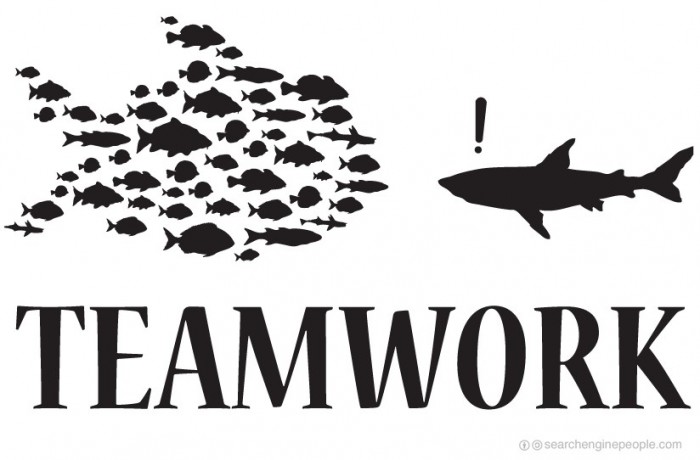Interviews: 5 Tips to Prepare Yourself
Florida Tech has multiple information sessions hosted by various companies year-round, the majority in the fall semester as hiring managers look for new recruits for the coming new year. The sessions are very beneficial to students because not only does it let them see what kind of jobs are out there and what skills companies are looking for, but many of them also collect resumes after the session. From the batch of resumes, the company picks people who are likely candidates for open positions and calls them for a full interview later that week. Even if the company does not collect resumes at that time, the info sessions are still a great way to meet people working at students’ prospective work places. I have had the opportunity, through the sessions and from the Career Fair, to have multiple interviews the past few weeks, and so here are 5 tips about interviews I think might be beneficial to other students.
1.STAR approach
Quite a few companies conduct what are referred to as Behavioral or Situational Interviews, and I discovered they have a preferred answer format—the STAR approach. This kind of interview usually has questions in the form of “what have you done in such-and-such situation?” (ie “Give an example of a time you had to make a difficult decision”). Your answer should then follow the format of Situation or Task, Action, and Results (STAR)—describe the situation or task you needed to accomplish, describe what action you took, and what the results were. Some example questions can include:
- Describe a specific problem you solved for your employer.
- Give me an example of a situation that could not have happened successfully without you being there.
- Describe a situation when you had many projects due at the same time. What steps did you take to get them all done?
- Describe a time where you were faced with problems or stresses that tested your coping skills.
- Tell me about a time when you failed to meet a deadline. What things did you fail to do? What were the repercussions? What did you learn?

2. Weaknesses and Strengths
Very common types of questions in interviews have something to do with your weaknesses or strengths (ie “What would you consider your most prevalent weakness/strength?” or “Describe a time when your skills were tested.”). It is good to think about these questions beforehand, because if caught off-guard, they can be really awkward to answer, at least in my opinion. It also won’t look great if you know all of your weaknesses and were prepared to answer that question, but then you sit in silence as you scramble to come up with some strengths because you were not expecting the question! You also have to be careful to steer clear of what hiring managers call “fatal weaknesses”. You should pick a weakness that you can spin into a positive about yourself, not something that is going to make the manager wonder if you can do the job or not. For example, I have heard straight from a few hiring managers that they do not want to hear “I’m a perfectionist” or “I’m not very organized” or “I have a hard time getting places on time”. The first is considered extremely vague, while the other two say you may be a cumbersome employee.
3. Teamwork experiences
Another type of question that will most likely come up is your teamwork experiences. Practically every job nowadays is a team effort and hiring managers will want to make sure you can handle a team environment. You do need to make sure you identify exactly what you did as part of the team, however; so your answer will start out as “We were working on this” and then morph into “I did this and this”. I have found a lot of my lab experiences here at Florida Tech help with these kind of questions, because all of them have required at least one lab partner, and I always specify that I did this part while my partner did the other part, which ensured we completed the lab successfully and on time. Class projects can also come in handy here, as well as any relevant club activities. The interview will also most likely include something about when there was a problem in a team environment and what you did to overcome it (ie “Describe a time you got co-workers or classmates who dislike each other to work together.”).

4. Take examples from your resume
If you have written something on your resume, try to use it during the interview! The best of your qualities and experiences should be on there, anyway, and it’s probably the reason you got the interview in the first place. It’s ok to take examples from other aspects of your life (in fact, it’s encouraged), but don’t forget to make a point of telling them your most interesting/exciting experiences. It’s also been recommended to me to look over my resume right before the interview so everything is fresh in my mind. Don’t be afraid to take a second to organize your thoughts, either. It’s better to pause and make sure your example actually answers the question posed than to immediately spout off something and realize half-way through your explanation didn’t answer the question.
5. Ask questions
Last but not least, don’t be afraid to ask questions! I find it very helpful to ask clarifying questions if I am asked an extremely general, usually vague, question about my experience. At the end of all interviews I have ever had, they ask “Do you have any questions for me?” and you should always have at least one ready. This shows your further interest in the position, and possibly that you researched the company beforehand. Some I have used before include “Does your company support employees who want to go to graduate school later on?” or “What specific duties does this position require?” or “What has been your favorite part about working at this company?”
Interviews can definitely be stressful, but there are ways to prepare for them. In fact, it’s unwise not to do something in preparation; try reading over your resume, looking up practice questions, or doing a mock interview with a friend. All of these will help you present yourself the best you can to a company. The biggest thing I have learned going through multiple interviews, however, is the hiring managers are looking for someone who will fit well into their company and appreciate honesty. Be as honest as you can, and they will find the right fit for you. Good luck to all of you job searching right now!

*Example questions courtesy of Florida Tech’s Career Management Services.





